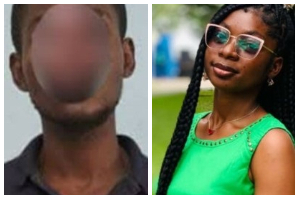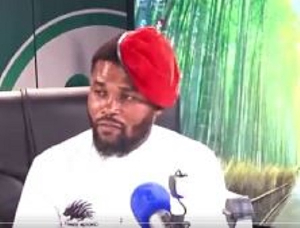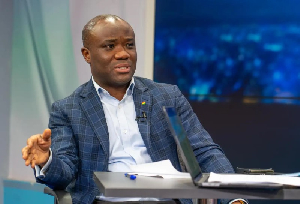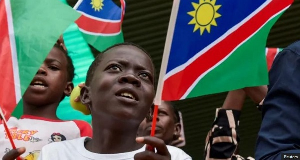THE ORGANISM OF DEMOCRACY OR THE ATAVISM OF AN AGITATIVE MULTI-PARTY CULTURE - OUR
NATION, OUR CHOICE.
The few
happenings in our country in recent times have laboured my head with
reflections on the distance Ghana has travelled so far along this whole path of
a multi-party democracy, and to confess, I’ve often being caught in a quizzical
wonder of what pleasure it has been or otherwise for a country to have chosen
democracy as the order of our national life. Then a few reminiscing arguments
popped up in my head about how those extremist classmates of mine, back at
school would usually make points in favour of a full or partial autocracy as a panacea
for meaningful development in Africa. I remember a particular lecturer in his
usual democratic-biased self would emphasise that “democracy
in itself is a commodity for development”. Though I never really jumped into the
thrill of the frontline debate, I may never have hidden my affection for
democracy and be that as it may, I think it leaves me with so much pleasure
each time I think about the strides our country has made and its prospects for
sustaining such as a meaningful democratic culture. Need we be reminded of the
days when the turbulence of military “fufu-heads” characterized our politics;
when our institutions were less developed, the rule of law was a façade and
separation of powers was only a concept in our books, the days when governments
ruled by decrees and the civil liberties of people were oppressed with
impunity? Like many more admirers of contemporary Ghanaian democracy, I would
on any day choose our current political dispensation over those times.
Though a few
of the times, I’ve had reasons to doubt if this country would ever work, each
time I’ve had to pour a few thoughts on paper, there is a succinct admission
that “Yes we
may” and more
so it may depend largely on the choices of our nation: The choice to go back to
the misery of our political histories or fully embrace the sophistication that
comes with democracy and the rule of law and even progress further with it. We
may as a country, choose to identify with the things that matter most, we may
choose to talk about them; we may choose to shut up or put up. In the same
vein, we may choose for ourselves the kind of politics we want while measuring
its impact on our total development, the point must not be empasised that political
development is a pre-requisite for total development. In the light of this, it
appears to be a universal conviction that the democracy that we have chosen for
ourselves in itself has its own intrinsic values that reflect our senses as a
nation, so that when we disagree on national issues, we voice out our opinions
using the right channels, so that when we need to organize demonstrations, we
only inform the police, so that we can hold elections every four years and
decide for ourselves the kind of government we want to have and hold them
accountable through our representatives or the media and that even after our
disagreement with the results of elections, we do not translate our disaffection
into bloodshed but we go to
the courts to seek for redress.
It’s worth arguing therefore that it may be for
good reasons that our electoral politics has been put on the spotlight over the
last eight months or so by the rather unprecedented petition filled at the Supreme
Court challenging the validity of the declaration that made John Mahama
President in the 2012 elections. Elections they say “are the instruments of
democracy”.
Analysing the substance or vacuum of the
petition and its implication on the triplet designation of democracy, the rule
of law and due process only brings me memory about the hue and cry of the
threats that the nature of our electoral politics poses to our democracy each
time there is an election, and justifiably so, one can only describe our electoral
politics as
overly agitative, polarized and out of focus with regards to the essence of
governance and politics in the context of a developing country. Till today, we
haven’t found the true reasons
why many of our politicians contest for power merely because they’ve not been
honest enough to our desires as a people, coupled with the de-facto two party
competition
buried with undertones of political ethnicisation. To wits, our politics over
the fourth republic has been about win and take all, divide and rule, win again
and come back. We have entrenched rather erroneously for ourselves a politics
that stinks of bigotry, selfishness, vindictiveness, and a schematic power-play
of survival in which only the strong and loyal members of a political grouping
prosper. Many reasonable Ghanaians shuddered at the sheer rage and tension that
inundated the campaign of the last election as many had doom-spelled that the
electoral tension if not managed could send us into that dreaded abyss, which
has kept has different among many an African country. What more could a nation
had asked for than to set the National Peace Council into full flight to
conscientise our politicians that Ghana wasn’t going to be for them after the
2012 elections. The unfortunate truth was that many accusing eyes were on the
leader of the opposition party probably because of some distasteful remarks
that had come from his quarters of the political divide prior to the election.
The hush has been over; we came out of the 2012 elections hale and hearty as a
country but not without for the first time a resolve by the opposition party to
challenge the results in court. In fact not too many people can deny that this
country was gripped by fear once again by that resolve by Akufo Addo who many
believe was taking his obsession with the rule of law too far and could
sacrifice the country’s marginally endured stability on the altar of his
political libidos. Even for lovers of democracy, it was time to revise the
notes. Sincerely, I had some silent questions myself: Why would a system of
government be that expensive, traumatic, yet in the end so accommodating to
people like Nana Addo? How could the constitution in a growing democracy be
that charitable to “bad losers” when a country must move on
because their people needed development? It was then that I thought that
perhaps democracy was rather too sophisticated and patient for our country.
Today,
your guesses are as good as mine, and whichever way you may want to argue, our
people are a living testimony to the fact that democracy maybe the worse form
of government yet better that the others. True democracy is exactly what we
need to deal with our political excesses as a nation; where men would live
under the rule of law and due process no matter how unpleasant they may be with
the system and in the faith of Abraham Lincoln, “government would be of the
people, for the people and by the people”. Evidently, the organism of democracy
has found a way of insulating us from that state of degeneration where man
would find the pleasure of chopping off the head of another or brutalizing a
group and painting our streets with blood. Isn’t that what we dreaded as a
nation? Today in Ghana, even the youngest chap appreciates the place that our
judiciary has in our democracy, the law is a friendlier concept now, thanks to
the eight months of the court room broadcast that we have enjoyed in our rooms.
Even more importantly, we have been exposed to the modus operandi of the
electoral commission and the loopholes in our electoral system evident by some
admissions made in court by the chair of the E.C or better still the probing
lens of the petition. The parties in the case have done this country a favour by
accepting and respecting the verdict of the Supreme Court however happy or
unhappy they may be. In the words of Akufo Addo, “it’s now time for us to put
the dispute behind us and come together to iron out our differences, ease the
tension amongst us and come together to build our nation” It is refreshing to
think that the country
is moving on steadily to its democratic normalcy without having to sprinkle a
pint of blood.
Isn’t it
such a powerful concept to be Ghanaian? But to what extent can we show this
pride in the full context of our democracy and the rule of law, particularly in
appreciating the nature of our electoral politics. Going forward, how do we
build our institutions to work more resiliently? How do we reconcile the crumbling
factions and the excesses of our multi-party competition? How do we stop
insulting each other every day because of power? How do we put a stop to the
ethnicity in our politics? How do we cease the fire of loose talks by party
General Secretaries and do away with the wanton corruption and impune
kleptocracy that is deeply seated in public office shouldered by executive-legislative
connivance. Would we still put our country in gruesome anaemia because
politicians would fight over power in the next elections, betraying the bread
and butter issues?
Having
exposed our country to the naked pleasure of upholding democracy and its
true-tenets even in the midst of fire and brimstone and surviving as a nation,
shall we embrace even closely this sophisticated organism of democracy to make
meaning to national life and politics or after these long tiring experiences,
we shall go back to the kind of politics that leaves us wondering where we have
set off to and why after literally teaching Malaysia how to plant palm nuts,
they are thriving in the business than we are? Our choices are clear as a
nation.
Chairman
Nii Tettey Ashong
For God
and for country.
Opinions of Sunday, 15 September 2013
Columnist: Ashong, Nii Tettey


















